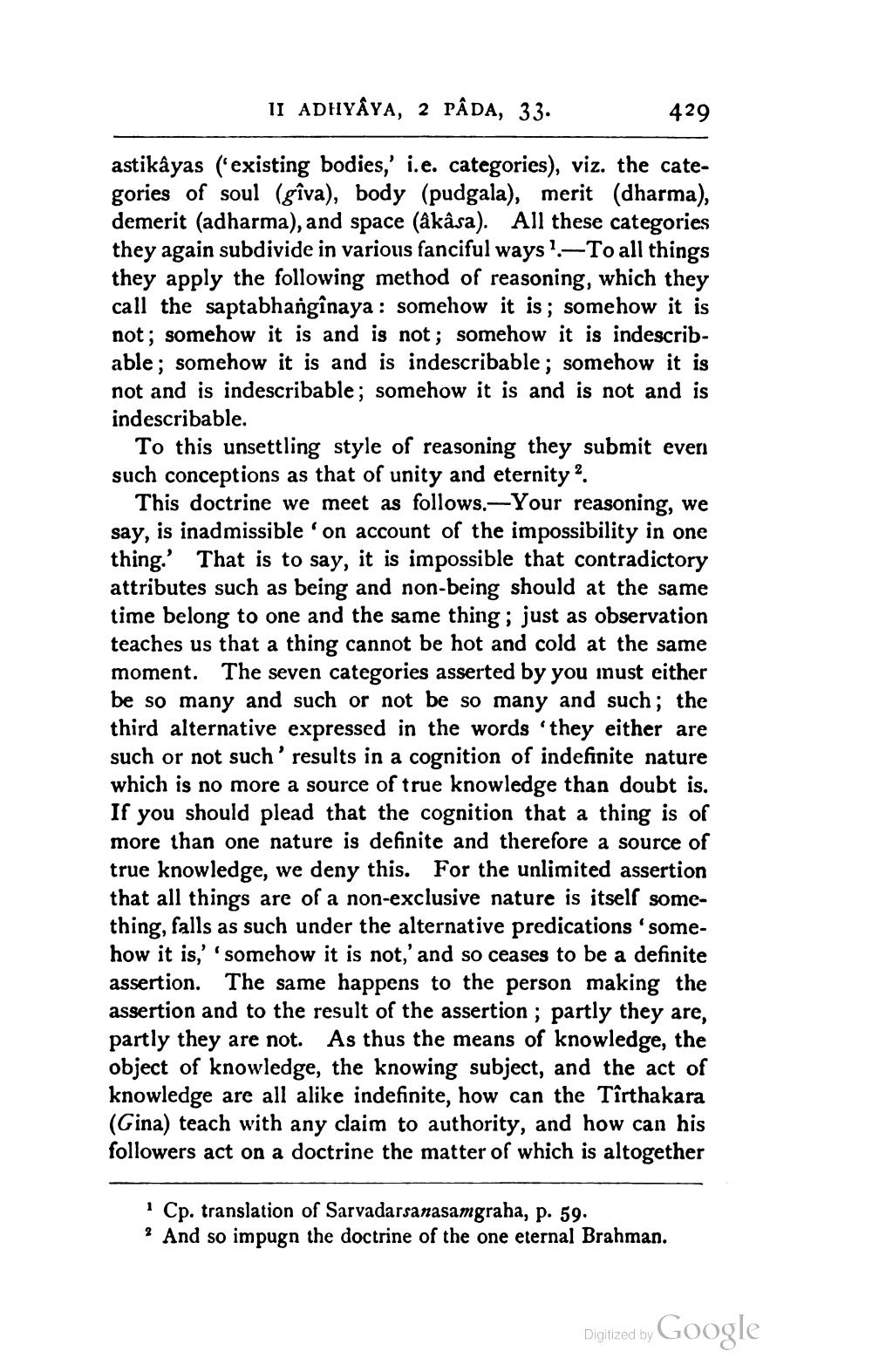________________
11 ADHYÂYA, 2 PÂDA, 33.
429
astikayas (existing bodies,' i.e. categories), viz. the categories of soul (giva), body (pudgala), merit (dharma), demerit (adharma), and space (âkâsa). All these categories they again subdivide in various fanciful ways?:-To all things they apply the following method of reasoning, which they call the saptabhangînaya : somehow it is; somehow it is not; somehow it is and is not; somehow it is indescribable; somehow it is and is indescribable; somehow it is not and is indescribable; somehow it is and is not and is indescribable.
To this unsettling style of reasoning they submit even such conceptions as that of unity and eternity?
This doctrine we meet as follows.—Your reasoning, we say, is inadmissible on account of the impossibility in one thing.' That is to say, it is impossible that contradictory attributes such as being and non-being should at the same time belong to one and the same thing ; just as observation teaches us that a thing cannot be hot and cold at the same moment. The seven categories asserted by you must either be so many and such or not be so many and such; the third alternative expressed in the words 'they either are such or not such results in a cognition of indefinite nature which is no more a source of true knowledge than doubt is. If you should plead that the cognition that a thing is of more than one nature is definite and therefore a source of true knowledge, we deny this. For the unlimited assertion that all things are of a non-exclusive nature is itself something, falls as such under the alternative predications 'somehow it is,' 'somehow it is not,' and so ceases to be a definite assertion. The same happens to the person making the assertion and to the result of the assertion ; partly they are, partly they are not. As thus the means of knowledge, the object of knowledge, the knowing subject, and the act of knowledge are all alike indefinite, how can the Tîrthakara (Gina) teach with any claim to authority, and how can his followers act on a doctrine the matter of which is altogether
i Cp. translation of Sarvadarsanasamgraha, p. 59. ? And so impugn the doctrine of the one eternal Brahman.
Digitized by Google




